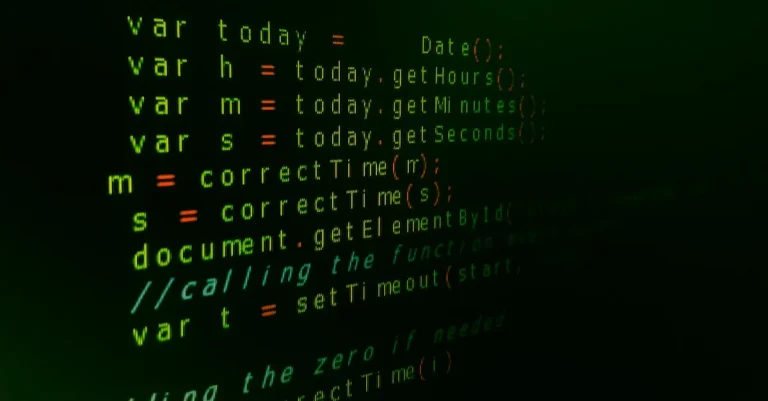Is Ap Computer Science Principles Difficult? Evaluating The Rigor Of This Ap Course
AP Computer Science Principles is notable for introducing coding basics and computational thinking concepts to high school students. With less programming than the traditional AP Computer Science course, some see it as an easy alternative.
But is AP Computer Science Principles actually considered a difficult AP course? In this comprehensive guide, we’ll analyze the academic rigor involved and provide advice for succeeding.
If you’re short on time, here’s a quick answer: AP CSP can be manageable for many students with its broad focus beyond coding, flexible performance tasks, and no math prerequisites. But dedicated practice is still required to do well on the multiple-choice exam and master programming fundamentals.
Examining the Curriculum and Testing Approach
Breadth of Topics Beyond Coding
The AP Computer Science Principles course goes beyond just coding and delves into a wide range of topics related to computer science. Students are exposed to concepts such as algorithms, data analysis, cybersecurity, and the societal impacts of technology.
This comprehensive curriculum ensures that students develop a holistic understanding of computer science and its applications in the real world. It also prepares them for the demands of the AP exam, which evaluates their knowledge across these diverse areas.
Required Performance Tasks
In addition to the traditional multiple-choice exam, AP Computer Science Principles also includes performance tasks that assess students’ ability to apply their knowledge in practical scenarios. These tasks require students to complete hands-on projects, analyze data sets, and solve real-world problems using computational thinking.
By incorporating performance tasks, the course ensures that students not only understand the theoretical concepts but also possess the skills to apply them effectively.
Multiple-Choice Exam Content
The AP Computer Science Principles exam consists of both multiple-choice questions and performance tasks. The multiple-choice section tests students’ understanding of the course material, including their ability to interpret code, analyze algorithms, and apply computational thinking principles.
This section assesses not only their knowledge of coding but also their comprehension of broader computer science concepts. The inclusion of multiple-choice questions allows for a standardized evaluation of students’ understanding across various topics and ensures a fair assessment process.
It is worth noting that while the AP Computer Science Principles course covers a wide range of topics, it is designed to be accessible to students with no prior programming experience. The curriculum is structured in a way that introduces fundamental concepts gradually, allowing students to build a strong foundation before delving into more complex topics.
With proper dedication and a growth mindset, students can successfully navigate the course and excel in the AP exam.
For more information about the AP Computer Science Principles course and exam, you can visit the College Board’s official website.
Skills and Challenges to Manage
Learning Programming Basics
One of the key skills required to succeed in AP Computer Science Principles is learning the basics of programming. Students will delve into the world of coding, understanding the syntax, and applying it to real-world problems.
While this may seem daunting at first, the course is designed to guide students through the process step by step. By starting with simpler programming concepts and gradually building up to more complex ones, students can develop a solid foundation in programming.
Writing Algorithms and Explanations
Another challenge students may encounter while taking AP Computer Science Principles is the task of writing algorithms and explanations. Algorithms are step-by-step procedures used to solve problems, and students will learn how to design, implement, and analyze algorithms.
Additionally, they will be required to explain their thought process and the logic behind their solutions. This skill not only helps students become better problem solvers but also enhances their ability to communicate their ideas effectively.
Managing Complex Projects
In AP Computer Science Principles, students will work on complex projects that require them to apply their programming skills and knowledge to solve real-world problems. These projects often involve extensive planning, designing, and implementing solutions.
Students will need to manage their time effectively, break down the tasks into smaller components, and collaborate with their peers. This not only enhances their technical skills but also develops their project management and teamwork abilities.
It is worth noting that while AP Computer Science Principles may present challenges, it is also a rewarding and fulfilling course. With dedication, practice, and a growth mindset, students can overcome these challenges and develop valuable skills that will benefit them in their future endeavors.
Strategies for Success in AP CSP
Using Supplemental Coding Resources
One of the key strategies for success in AP Computer Science Principles (CSP) is to utilize supplemental coding resources. While the course curriculum provides a solid foundation, exploring additional resources can help students deepen their understanding of coding concepts and enhance their problem-solving skills.
Websites like Codecademy, Khan Academy, and FreeCodeCamp offer interactive coding exercises and tutorials that can supplement the material covered in class. These resources provide students with the opportunity to practice coding in a hands-on manner, which can greatly improve their proficiency in AP CSP.
Additionally, students can join coding communities and forums, such as Stack Overflow or GitHub, where they can collaborate with other learners and seek guidance from experienced programmers. These communities not only provide valuable insights but also foster a sense of camaraderie and support, making the learning process more enjoyable.
Practicing Multiple-Choice Questions
Another effective strategy for success in AP CSP is to practice multiple-choice questions. The AP exam for CSP includes a multiple-choice section that tests students’ knowledge of programming concepts, algorithms, and computational thinking.
By regularly practicing these types of questions, students can familiarize themselves with the format and content of the exam, improving their ability to answer questions accurately and efficiently.
There are various online platforms, such as the College Board’s AP Classroom, that provide practice questions specifically designed for the AP CSP exam. Students can also access past AP exam questions to get a sense of the types of questions that may be asked.
Additionally, seeking feedback from teachers or utilizing online resources that offer explanations for each question can help identify areas of improvement and reinforce understanding of key concepts.
Allotting Sufficient Time for Performance Tasks
In AP CSP, performance tasks play a crucial role in demonstrating students’ computational thinking and problem-solving abilities. These tasks involve developing and implementing a program to solve a given problem, documenting the design process, and evaluating the effectiveness of the solution.
To excel in these tasks, it is essential for students to allocate sufficient time for planning, coding, and testing.
Students should carefully read the task prompts, identify the requirements, and break down the problem into smaller, manageable components. Creating a timeline or schedule can help ensure that each stage of the task is completed within the given timeframe.
It is also important to regularly review and revise the code to address any errors or optimize the solution. Seeking feedback from teachers or fellow students can provide valuable insights and improve the quality of the final submission.
By utilizing supplemental coding resources, practicing multiple-choice questions, and allotting sufficient time for performance tasks, students can enhance their understanding of AP CSP and increase their chances of success in the course and on the AP exam.
Conclusion
While less programming intensive than AP Computer Science, AP CSP still requires learning new technical skills. With a structured study plan leveraging practice resources and allocating sufficient project time, many motivated students can find success mastering coding fundamentals and computational thinking principles.
AP CSP provides a valuable introduction to computer science for those willing to put in the work.







